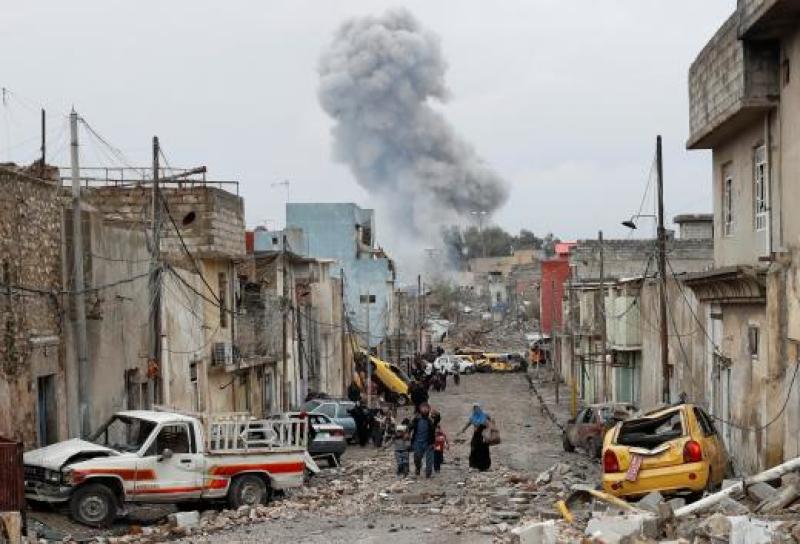
While the Iraqi government celebrated as its Prime Minister officially declared victory over ISIS in Mosul on Monday, many humanitarian groups expressed concern that much still remains to be done in addressing the human rights violations and displacement that occurred in the process.
"From the Old City we announce the liberation of Mosul and remember the heroic sacrifices of our armed forces and their families," Iraqi Prime Minister Haider al-Abadi tweeted on Monday.
Early on Tuesday, al-Abadi added in another tweet: "As we announce the liberation of Mosul we also acknowledge the challenges of reconstruction and stability and call on Iraqis to unite."
The Islamic State, also known as ISIS, declared Mosul as its territory in June of 2014. The battle to reclaim Mosul has caused more than 900,000 to flee from their homes.
Mosul's captivity under ISIS particularly affected the Christian community. Over 100,000 Christians have been displaced, and the extremist group had destroyed or taken captive all of Mosul's churches and religious institutions.
William Stark, the regional manager for International Christian Concern, said that while ISIS defeat in Mosul is a positive step, much remains to be done for Christians to feel safe in the city.
"Although the liberation of Mosul is something to be celebrated, it doesn't change the fact that there is still a long road and difficult road ahead of Iraq's Christians," Stark said.
"For over three years, ISIS was allowed to occupy Mosul and its surrounding towns, some of which were considered Christian safe havens. During this occupation, ISIS not only destroyed much of what these Christians considered the symbols of their community, such as churches and schools, but also the homes these Christians were forced to leave in 2014," Stark went on. "There is much healing and rebuilding needed if Christians are to return to their communities in northern Iraq."
BBC reports that over 5,000 buildings have been damaged and 490 have been destroyed in the Old City.
Activists have also been calling on governments to remember the humanitarian needs that remain.
"Many of the people who have fled have lost everything," Lise Grande, UN humanitarian coordinator in Iraq, told BBC. "They need shelter, food, health care, water, sanitation and emergency kits. The levels of trauma we are seeing are some of the highest anywhere. What people have experienced is nearly unimaginable."
In a report published on Tuesday, Amnesty International said all parties involved in the battle to reclaim Mosul have carried out violations of international humanitarian law, including ISIS, Iraqi forces, and the US-led coalition.
"Even in attacks that seem to have struck their intended military target, the use of unsuitable weapons or failure to take other necessary precautions resulted in needless loss of civilian lives and in some cases appears to have constituted disproportionate attacks," Amnesty International said in the report.
"The root causes of violence and conflict in Iraq need to be addressed in terms of human rights violations suffered by all communities in the country over several decades," Zeid Ra'ad Al Hussein, UN human rights chief, was quoted as saying by Al Jazeera. "Only then can secure foundations be laid for the lasting peace that the Iraqi people deserve."
















